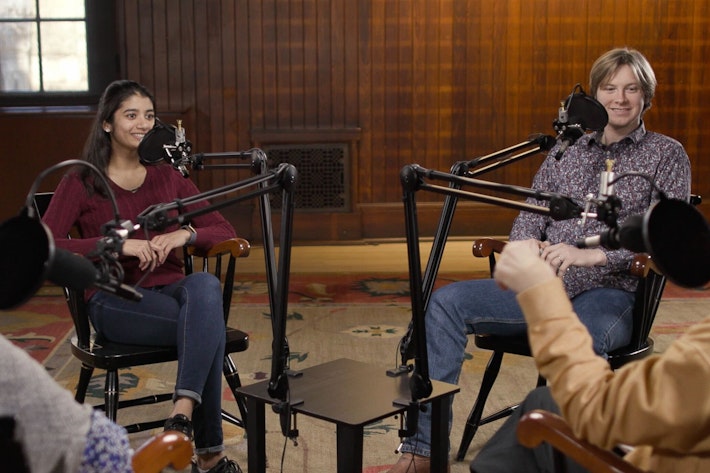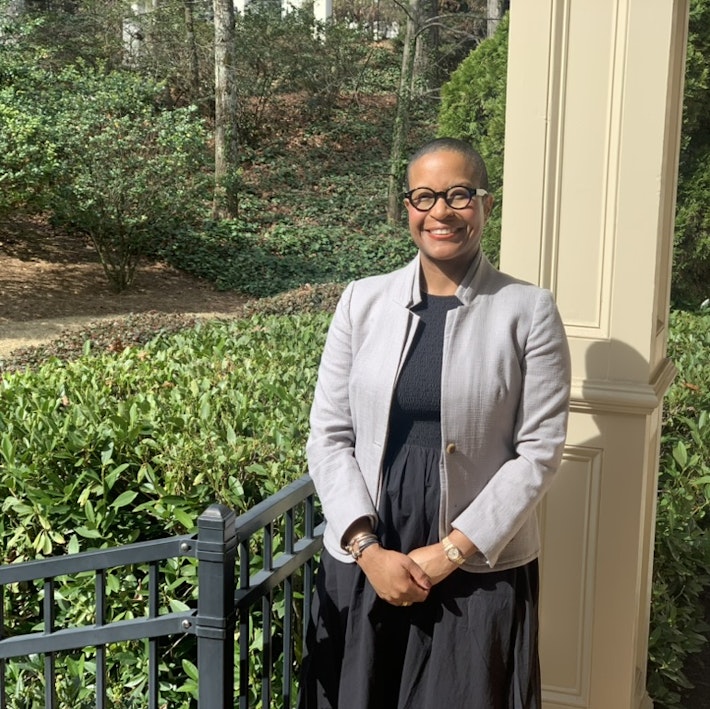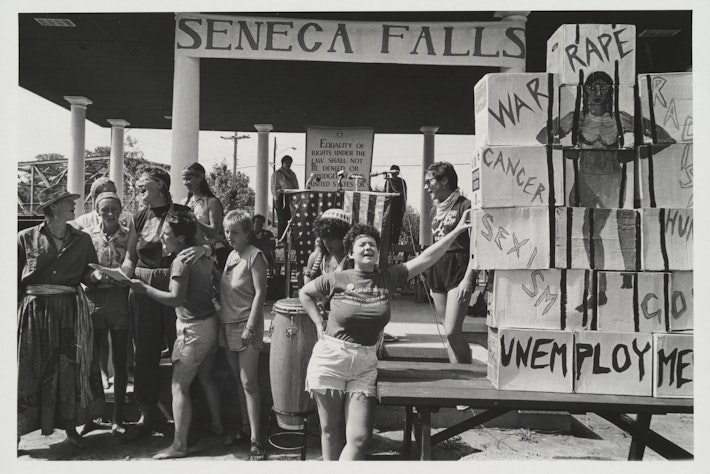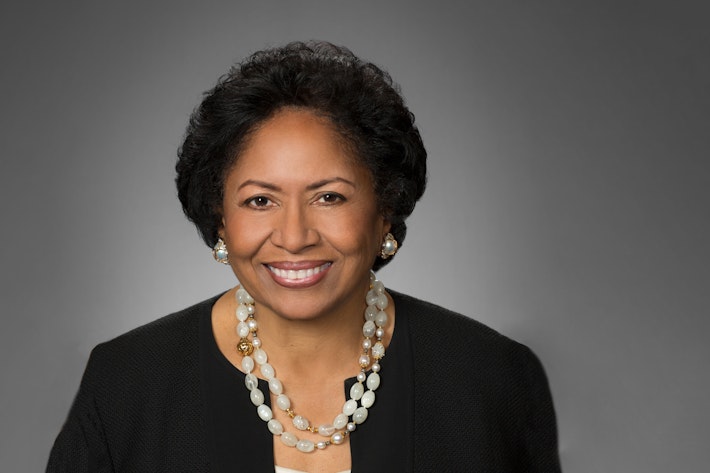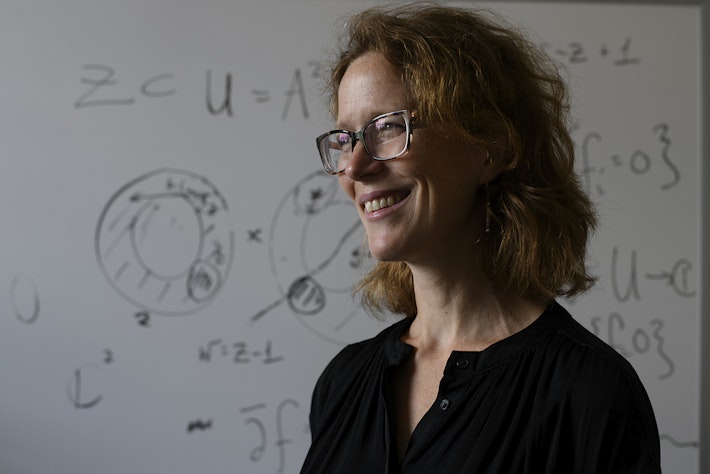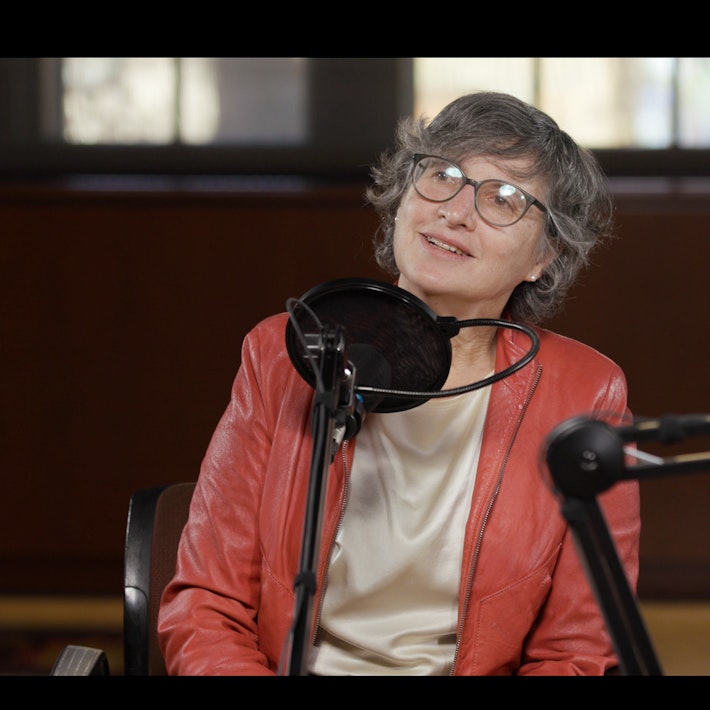Radcliffe Institute Announces 2019–2020 Fellowship Class
The scholars, artists, scientists, and practitioners who comprise the incoming class of fellows will direct their creative and intellectual energy to addressing some of the most complex and urgent challenges of our time.
One scholar will write a book examining the impact of the US opioid crisis on how health-care providers and law-enforcement officials do their jobs. Another will develop ideas for building social and environmental awareness into the Internet of things.
Not to be outdone: the political scientist focused on a convergence of threats to American democracy, the behavioral scientist investigating welfare-enhancing innovations, or the physician expanding her efforts to illuminate and combat the effects of racism on the health and well-being of the nation.
Their common ground? The Radcliffe Institute for Advanced Study at Harvard University, where members of the 2019–2020 fellowship class will direct their creative and intellectual energy to producing solutions to some of the most complex and urgent challenges of our time.
“This is a remarkable class of fellows,” said Radcliffe Institute Dean Tomiko Brown-Nagin RI ’17, the Daniel P. S. Paul Professor of Constitutional Law at Harvard Law School and professor of history in the Faculty of Arts and Sciences. “Radcliffe’s Fellowship Program—a microcosm of the Institute—is a laboratory of ideas where scholars, artists, scientists, and practitioners draw insights from one another and generate new knowledge that spans disciplinary boundaries. I am extraordinarily excited to see what emerges from this incredible group of individuals in the year ahead.”
The acceptance rate for the highly competitive fellowships was 3.7 percent, with an impressive variety of literary and visual artists, along with sociologists, physicists, and historians—such as Jill Lepore (Perrin Moorhead Grayson and Bruns Grayson Fellow)—among the more than 50 members of the 2019–2020 class. The incoming fellows represent 10 countries and were selected from a group of more than 1,000 applicants. In addition to Lepore, a Harvard professor and a 2019 Pulitzer Prize finalist for her work as a New Yorker staff writer, they include:
- Esra Akcan (Frieda L. Miller Fellow), an associate professor in architecture at Cornell University, will work on a book exploring the potential for architecture to play a healing role in post-disaster and post-conflict societies.
- Fran Berman (Katherine Hampson Bessell Fellow), a professor of computer science at Rensselaer Polytechnic Institute, will develop a framework that promotes social and environmental responsibility in Internet of things design.
- Liz Chiarello, an assistant professor of sociology at Saint Louis University, will demonstrate how social problems transform social fields by exploring health-care and criminal-justice strategies against the US opioid crisis.
- Camara Phyllis Jones (Evelyn Green Davis Fellow), a physician and epidemiologist at Morehouse School of Medicine, will expand on her efforts to identify and combat different forms of racism.
- Nina McConigley (Walter Jackson Bate Fellow), a fiction writer and an instructor at the University of Wyoming, will work on a novel about the rural immigrant experience in the American West.
- Suzanne Mettler (Katherine Hampson Bessell Fellow), a political scientist at Cornell University, will examine the immediate danger for American democracy posed by the convergence of several historical threats: political polarization, racism and nativism, the rise of presidential power, and economic inequality.
- Todd Rogers (Lillian Gollay Knafel Fellow), a behavioral scientist and professor of public policy at Harvard Kennedy School, will bring years of experience on behavioral policy to a project focused on helping scholars and practitioners identify, design, and invest in welfare-enhancing innovations.
- Christian Rutz (Grass Fellow), a professor of biology at the University of St Andrews, will explore mind-boggling achievements of human technological evolution through the lens provided by the extraordinary feats of the New Caledonian crow.
- Todne Thomas, the Suzanne Young Murray Assistant Professor at the Radcliffe Institute, will complete her book on the familial and spiritual experiences of black evangelicals.
“I am particularly excited about the number of fellows whose work engages public policy and promises to have social impact,” said Dean Brown-Nagin. “One of the wonderful things about a Radcliffe fellowship is the opportunity for productive exchange among scholars and practitioners who seek to address contemporary social and economic issues and those devoted to artistic pursuits and more traditional academic subjects.”
The 2019–2020 class also includes two Mellon-Schlesinger Fellows, as part of the multiyear Long 19th Amendment Project of Radcliffe’s Schlesinger Library on the History of Women in America. University of Connecticut historian Manisha Sinha will examine the limits and possibilities of progressive constitutionalism through study of gender and race issues that arose during Reconstruction. Liette Gidlow, an associate professor of history at Wayne State University, will seek to reveal and explore connections between the 19th Amendment of 1920 and African American freedom movements of the 1950s and ’60s. Both Sinha and Gidlow will draw heavily on Schlesinger collections.
Meredith Quinn, who is wrapping up her first academic year as executive director of the Radcliffe Institute Fellowship Program, is looking forward to watching members of the incoming class connect and thrive during their time in Cambridge.
“I am thrilled to welcome these extraordinary individuals to the Radcliffe community,” she said. “Our fellows dive deeply into their projects, challenge one another’s ideas, and support one another’s ambitions. We can’t wait to see what they’ll accomplish next year.”
View the full list of 2019–2020 Radcliffe Institute fellows and their projects.
About the Radcliffe Institute for Advanced Study at Harvard University
The Radcliffe Institute for Advanced Study is a unique space within Harvard—a school dedicated to creating and sharing transformative ideas across all disciplines. Each year, the Institute hosts about 50 leading scholars, scientists, and artists from around the world in its renowned residential fellowship program. Radcliffe fosters innovative research collaborations and offers hundreds of public lectures, exhibitions, performances, conferences, and other events annually. The Institute is home to the Arthur and Elizabeth Schlesinger Library, the nation’s foremost archive on the history of women, gender, and sexuality. For more information about the people and programs of the Radcliffe Institute, visit www.radcliffe.harvard.edu.


